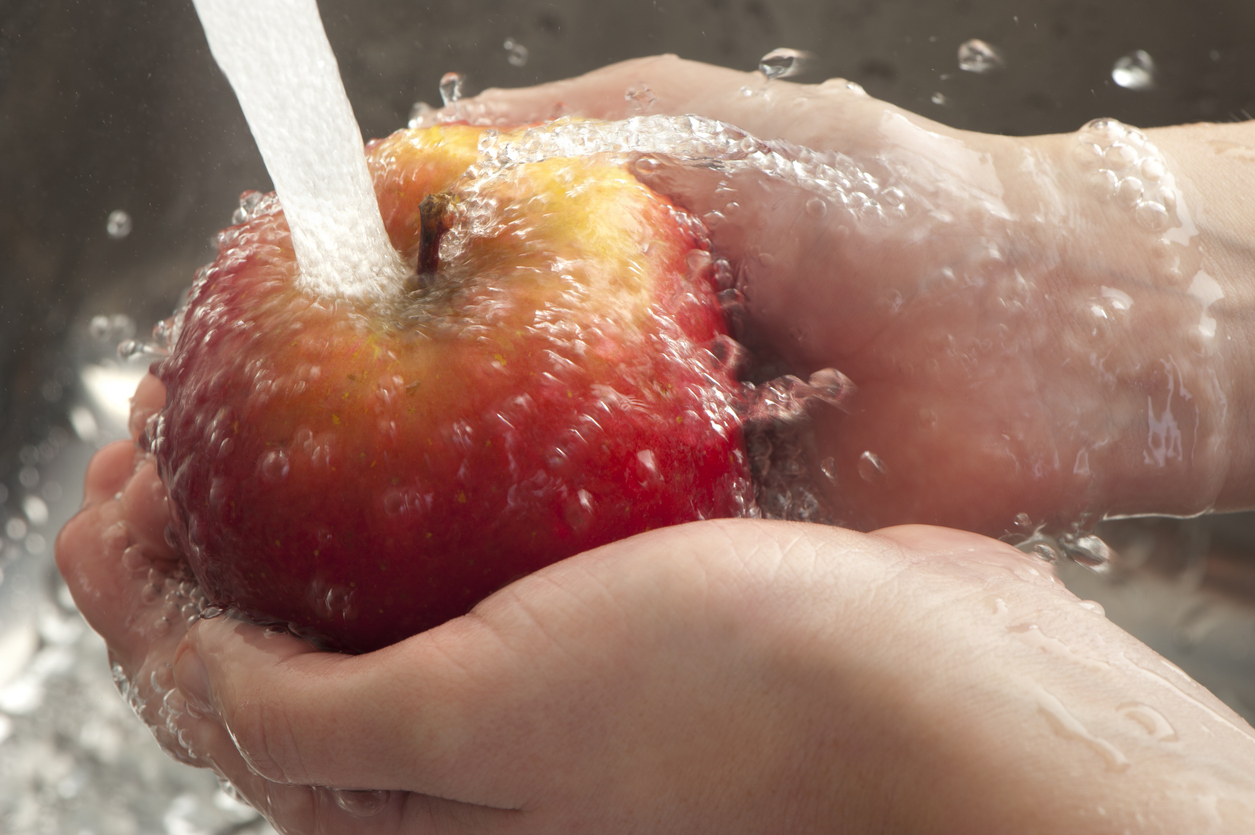At a time when consumers are more health-conscious than ever, it’s easy to see the appeal of products that promise to make your food cleaner and safer. But not all claims are backed by science, and in the case of Clean Boss promoting its “Eat Cleaner” produce wash, they’re not.
Let’s separate fact from fiction.
What the Experts Recommend: Wash with Water
According to the U.S. Food and Drug Administration (FDA), washing fruits and vegetables under clean, running water is the best way to reduce and often remove residues and contaminants. The Centers for Disease Control and Prevention (CDC) and U.S. Department of Agriculture (USDA) agree.
Despite what some commercial products suggest, there is no evidence that produce washes—homemade or store-bought—are more effective than water alone. In fact, many of their claims are not backed by peer-reviewed research or validated by regulatory agencies.
Here’s what you should know:
- Pesticide residues are already well below safety thresholds. The Environmental Protection Agency (EPA) sets strict limits to protect human health.
- Water is enough. FDA, CDC, and USDA all recommend using only running water—no soap or commercial produce wash needed.
- Scare tactics aren’t helpful. Framing everyday produce as dangerous unless treated with a specialty cleaner spreads fear, not facts.
Who’s Behind the Produce Wash Claims?
The “experts” behind the “Eat Cleaner” produce wash are Joy Mangano and Armando Christian Perez—better known as Pitbull. While both are accomplished in their respective fields, neither has a background in public health, food science, food safety, or toxicology.
Mangano is best known for inventing the Miracle Mop and selling products for mass appeal on home shopping networks like QVC. Pitbull is an international music artist. Their success in entertainment and consumer products is undeniable—but it’s important to remember that celebrity endorsements don’t equal scientific credibility.
Pesticide Use is Regulated and Monitored
Contrary to what some product marketers suggest, pesticide use in the U.S. is far from the Wild West. Apple growers must adhere to strict EPA guidelines on how and when to apply pesticides, and residues are carefully monitored.
The USDA’s Pesticide Data Program (PDP) tests thousands of food samples each year. In its most recent report (2023 data), the USDA found that 100% of tested apple and applesauce samples had either no detectable residues or residue levels far below the safety tolerances established by EPA.
Want to dig deeper? The Residue Calculator, based upon USDA data and analyzed by toxicologists with the University of California, shows that:
A woman could eat 850 apples a day, and a man 1,190 apples a day, with no harmful effect from pesticide residues.
Let’s Clear Up the Wax Confusion
Another claim being pushed: that wax coatings “lock in pesticides.” That’s false.
Fresh apples naturally produce their own waxy layer to help retain moisture. After harvest, apples are washed to remove dirt and leaves—this process removes the original wax. Many packers apply a food-grade wax to protect the fruit during storage and transport. This is safe, edible, and has been approved for use for decades. Learn more about wax on apples here.
The Bigger Picture: Americans Need More Fruits and Veggies, Not Less
Research shows the powerful health benefits of eating more produce—yet most Americans don’t meet the recommended daily intake. In fact, a peer-reviewed analysis found that if just half of Americans ate one more serving of fruits and vegetables each day, it could prevent an estimated 20,000 cases of cancer annually.
Fear-based marketing around food safety distracts from the real issue: too few people are eating enough fruits and vegetables, and scare tactics only make that worse.
Bottom Line: Trust Science, Not Hype
At USApple, we want consumers to feel confident about fresh produce. The best, science-backed approach? Wash your fruits and veggies with clean running water—then enjoy.
Let’s keep the focus on facts, not fear.








